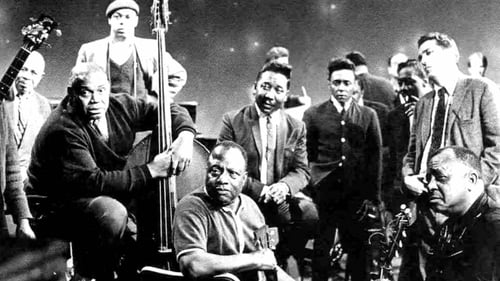Bessie Smith
出生 : 1894-04-15, Chattanooga, Tennessee, USA
死亡 : 1937-09-26
略歴
Bessie Smith was an American blues singer widely renowned during the Jazz Age. Nicknamed the "Empress of the Blues", she was the most popular female blues singer of the 1920s and 1930s. She is often regarded as one of the greatest singers of her era and was a major influence on fellow blues singers, as well as jazz vocalists.

Self (archive footage)
The story of The Blues traces the four main traditions of blues music: Form Blues, Blues, Urban Blues and Blues Electric. The blues has evolved and diversified, and filtered into a surprising variety of styles in contemporary music. In the blues the history of music was released. A look at the roots, origins and the subsequent influence of style the film explores the blues significant contribution to the development of jazz, rock and country and western music. Big Bill Broonzy, Robert Johnson, Lonnie Johnson, Blind Lemon Jefferson, Alexander Texas, and many more artists are featured through the film.

Self (archive footage)
A star-studded tribute (from the creators of That's Entertainment) to the contributions of Afro-Americans in film over the last century. Vanessa Williams traces the struggles and triumphs of the superstars of music and film. Among the many artists featured are: Whitney Houston, Ella Fitzgerald, Sammy Davis Jr., Diana Ross, Michael Jackson, Cab Calloway, Bill "Bojangles" Robinson, Ella Fitzgerald, and Little Richard, Also included are today's contemporary superstars: Snoop Dogg, Ice T, Quincy Jones, Spike Lee, Russell Simmons, and many, more! 80 minutes plus DVD bonus features.

Self (archive footage)
A Huey P. Newton Story is a 2001 film directed by Spike Lee. It is a filmed performance of Roger Guenveur Smith's one-man show of the same name. Smith sits in a chair on a stage and tells about the past, mostly dealing with Huey P. Newton's life and times.

Self (archive footage)
In 1966, CBC Television invited some of North America's greatest blues performers to gather in a studio in Toronto, recording together and individually in sessions that lasted three days. The result was originally televised as part of the CBC "Festival" series, and now the session video tapes have been found, restored and re-edited. The great Muddy Waters and his band perform "You Can't Lose What You Never Had" and "Got My Mojo Workin'," the latter with James Cotton on harmonica. Willie Dixon goes solo on "Bassology" and (helped by a little '90s technology) performs "Crazy for My Baby" with host Colin James. Plus rare appearances by Sonny Terry and Brownie McGhee, Mable Hillery singing "How Long This Train Been Gone," and delta blues piano player Sunnyland Slim, introducing a whole new generation to this inspiring, soulful music.

Self (archive footage)
Blues as a genre shaped the sound of jazz in the early 20th century and directly led to the creation of rock 'n' roll in the '50s. The scales, chords, and progressions of blues as a musical form can be found in styles from jazz to rock to contemporary R&B.

Self
Rhine Record's 2-DVD documentary accompaniment to their Blues Masters CD series. Includes the only know footage of Leadbelly and rare footage others including Son House and Bessie Smith

Self (archive footage)
Wild Women Don't Have the Blues shows how the blues were born out of the economic and social transformation of African American life early in this century. It recaptures the lives and times of Ma Rainey, Bessie Smith, Ida Cox, Alberta Hunter, Ethel Waters and the other legendary women who made the blues a vital part of American culture. The film brings together for the first time dozens of rare, classic renditions of the early blues.

Bessie - Battered Wife
In this all-black cast short, legendary blues singer Bessie Smith finds her gambler lover Jimmy messin' with a pretty, younger woman; he leaves and she sings the blues, with chorus and dancers.


